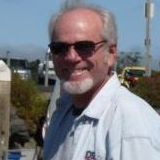Bio
When doing genealogy I regularly remind myself that the hobby is fact-based, not faith-based. Because of the latter, my professional academic friends do not regard genealogy as a serious endeavor. In fact, too many who consider themselves genealogists are, in fact, not following good genealogical practices. They pick and choose that speculation which suits their ego, some not even understanding that the date a person signed his will doesn't prove that he was still alive on that date (Really!) This is *all* about evidence as found in public records. To refuse documented fact is not nice.
I've been doing genealogy as a semi pro since 1977. I've published, taught genealogy, and have given numerous presentations. Although I don't hire myself out for personal genealogy projects, I am a professional genealogist. And I've been going genetic genealogy since 2006 and admin 31 DNA surname projects at FTDNA.com. I helped found the Genealogy Club of Humboldt State University where I taught classes in genealogy and genetic genealogy through the Osher Lifelong Learning Institute.
My first degree is in history. With that, I bring a degree of academic professionalism to my work. I factually cite sources and can almost smell bad genealogy as they most often don't. For example, here's a brief article I wrote about the wife of Richard Bennett, the Cromwellian Governor of Virginia.
http://bogusgenealogy.com/viewer.pl?2019-10-22-maryann.html
Here's another article criticizing the terrible methods used by amateur researchers.
http://bogusgenealogy.com/viewer.pl?2023-01-20-donkeytail.html
I also write a blog on genetic genealogy at http://blog.ancestraldata.com/
Y chromosomal studies have revolutionized surname studies and, therefore, genealogy itself. This is due to the fact that a man's Y chromosome is identical to his 10th great-grandfather with the possible exception of, perhaps, a half dozen markers among 57 million. The implications of that should be obvious.
When doing genealogy I regularly remind myself that the hobby is fact-based, not faith-based. Because of the latter, my professional academic friends do not regard genealogy as a serious endeavor. In fact, too many who consider themselves genealogists are, in fact, not following good genealogical practices. They pick and choose that speculation which suits their ego, some not even understanding that the date a person signed his will doesn't prove that he was still alive on that date (Really!) This is *all* about evidence as found in public records. To refuse documented fact is not nice.
I've been doing genealogy as a semi pro since 1977. I've published, taught genealogy, and have given numerous presentations. Although I don't hire myself out for personal genealogy projects, I am a professional genealogist. And I've been going genetic genealogy since 2006 and admin 31 DNA surname projects at FTDNA.com. I helped found the Genealogy Club of Humboldt State University where I taught classes in genealogy and genetic genealogy through the Osher Lifelong Learning Institute.
My first degree is in history. With that, I bring a degree of academic professionalism to my work. I factually cite sources and can almost smell bad genealogy as they most often don't. For example, here's a brief article I wrote about the wife of Richard Bennett, the Cromwellian Governor of Virginia.
http://bogusgenealogy.com/viewer.pl?2019-10-22-maryann.html
Here's another article criticizing the terrible methods used by amateur researchers.
http://bogusgenealogy.com/viewer.pl?2023-01-20-donkeytail.html
I also write a blog on genetic genealogy at http://blog.ancestraldata.com/
Y chromosomal studies have revolutionized surname studies and, therefore, genealogy itself. This is due to the fact that a man's Y chromosome is identical to his 10th great-grandfather with the possible exception of, perhaps, a half dozen markers among 57 million. The implications of that should be obvious.




